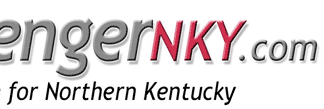What Social Media Reveals About Public OpinionYou often see social media acting as a lens, offering quick glimpses into what people care about most. Every shared post or trending hashtag hints at the mood of different communities. You might notice how news spreads faster, and opinions crystalize almost overnight, especially around major events. If you’re curious about how these digital conversations actually shape or reveal public feeling—beyond surface-level trends—you’ll want to consider who’s driving these discussions and how. The evolution of mass media has had a significant impact on public attitudes. Television, for instance, has transformed political communication by allowing politicians to engage directly with the public, thereby influencing perceptions and shaping opinions. Mass media narratives play a crucial role in framing public understanding of major events, as well as the reception of influential cultural works, which can lead to shifts in societal attitudes. Partisan media coverage can contribute to political polarization by reinforcing existing beliefs and making it challenging for individuals to consider alternative perspectives or understand the nuances of complex issues. Additionally, interest groups and opinion leaders often utilize mass media and advertising as tools to guide public attitudes in alignment with their objectives. Despite the increasing prevalence of social media, traditional forms of mass media continue to establish foundational narratives that shape public perceptions of various issues. This ongoing influence helps to mold the collective attitudes that characterize society at large. Social media platforms have significantly altered the landscape of political engagement, alongside traditional mass media. Data indicates that approximately 54% of U.S. adults utilize social media for news consumption, highlighting its importance in shaping public opinion. Notably, platforms such as Facebook function as primary news sources for about one-third of users, particularly among younger demographics. Research shows that users who identify as Democratic leaners tend to place greater value on social media for political engagement compared to their Republican counterparts. However, the influence of social media isn't without criticism. A substantial 79% of respondents express concerns that social media diverts attention from pressing political issues, which complicates its role in fostering meaningful political discourse. This suggests a dual-edged impact: while social media enhances accessibility and engagement, it also introduces challenges that may detract from substantive discussions on urgent matters. The Impact of Interest Groups and Opinion LeadersInterest groups and opinion leaders have increasingly leveraged social media as a means to shape public opinion in contemporary society. Unlike traditional media, which historically held a predominant influence, platforms such as Facebook and Instagram now serve as critical tools for interest groups to disseminate their messages and mobilize support. These groups utilize social media to execute campaigns that elicit engagement, thereby influencing public perceptions regarding various issues. Opinion leaders, who may include influential content creators or respected community figures, play a significant role in public discourse through the strategic use of hashtags and social media posts aimed at drawing attention to specific topics. Their ability to highlight issues can often sway discussions and impact public sentiment, particularly during critical events or debates. In addition to advocacy campaigns, interest groups sometimes conduct informal polls or surveys through social media channels. These efforts can contribute to framing the narrative around certain issues and may inadvertently skew public perception. The interplay between authentic public opinion and orchestrated campaigns can complicate the understanding of genuine sentiment by obscuring the boundaries between organic viewpoints and engineered responses. Demographics and Partisan Differences in Online News ConsumptionSocial media platforms have become a significant source of news for many Americans amidst evolving media consumption trends. Current data indicates that more than half of U.S. adults utilize social media for news purposes. However, demographic and partisan differences influence how news is consumed and disseminated across these platforms. Facebook and YouTube continue to draw large audiences due to their established presence and user-friendly interfaces. Conversely, younger users tend to gravitate towards platforms like Instagram and TikTok, where they engage in political discourse and express their opinions on various issues. Additionally, gender differences are apparent in news consumption habits. Male users are more likely to utilize platforms such as X and Truth Social, whereas female users predominantly favor Instagram and Snapchat for their news consumption. Partisan affiliations also play a role in platform preferences; Republican users often congregate on platforms like Rumble and Truth Social, while Democratic users are more inclined to use Instagram and TikTok. These trends indicate that social media isn't just a supplementary news source but has become integral to how different segments of the population consume political information. Understanding these dynamics is crucial for comprehending the broader implications of social media on public opinion and political engagement. Historical Events and Triggers That Shift Public SentimentSocial media platforms play a significant role in how various groups access news and respond to major events that influence public sentiment. Historical instances such as the Chernobyl disaster and the Exxon Valdez oil spill demonstrate how media coverage, alongside online discussions, can rapidly alter public opinion and catalyze activism. These incidents have triggered grassroots movements that utilize social media to raise awareness and advocate for policy changes. For instance, the 2020 Black Lives Matter protests were significantly amplified by social media, which highlighted issues of racial injustice and facilitated collective action. Additionally, high-profile documentaries like "An Inconvenient Truth" have contributed to the ongoing discourse around climate change, influencing public perspectives and policy considerations. ConclusionWhen you scroll through social media, you're not just catching up—you're witnessing real-time shifts in public opinion. These platforms don’t just reflect what people think; they help shape it. From trending hashtags to shares by influencers, your feed reveals which issues matter and how groups respond. As you engage, you’re part of the momentum that drives discourse and change. So, remember, every like, comment, or share contributes to the evolving story of public opinion. |



